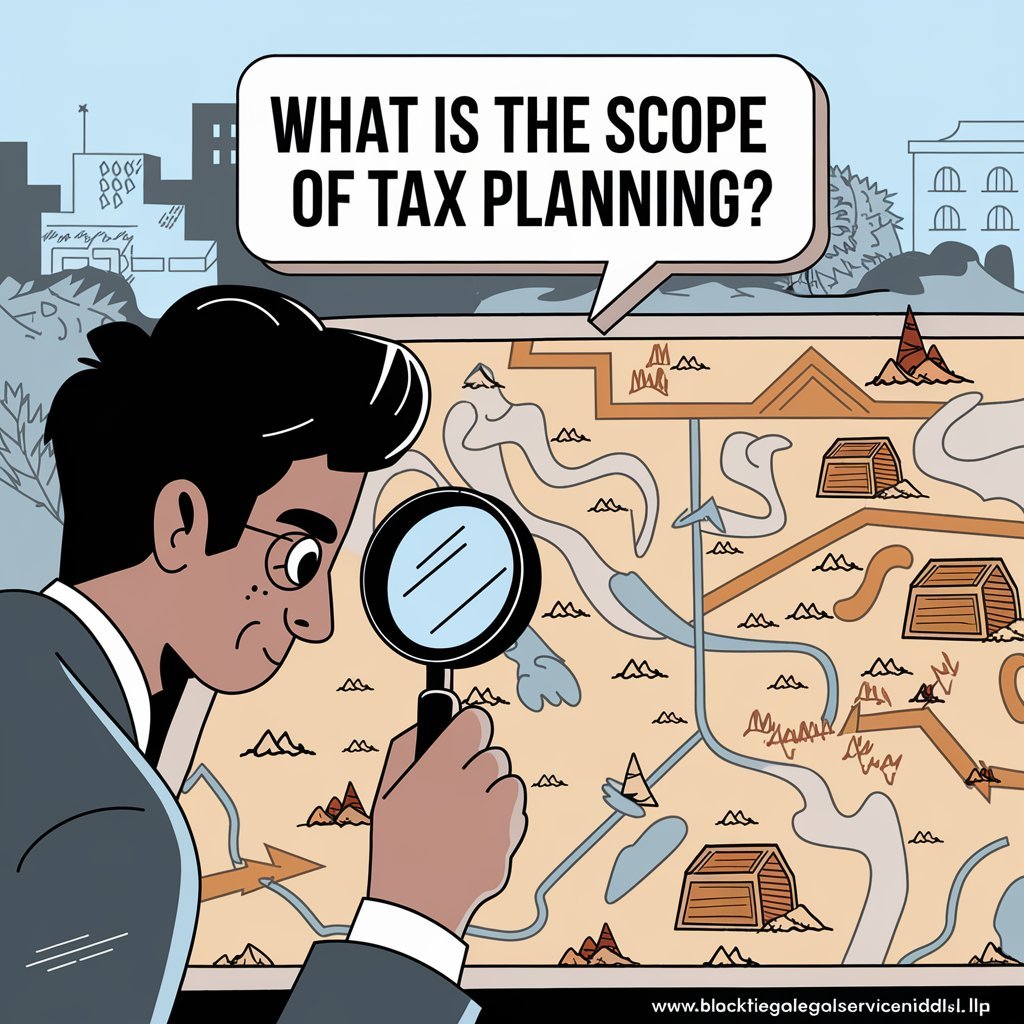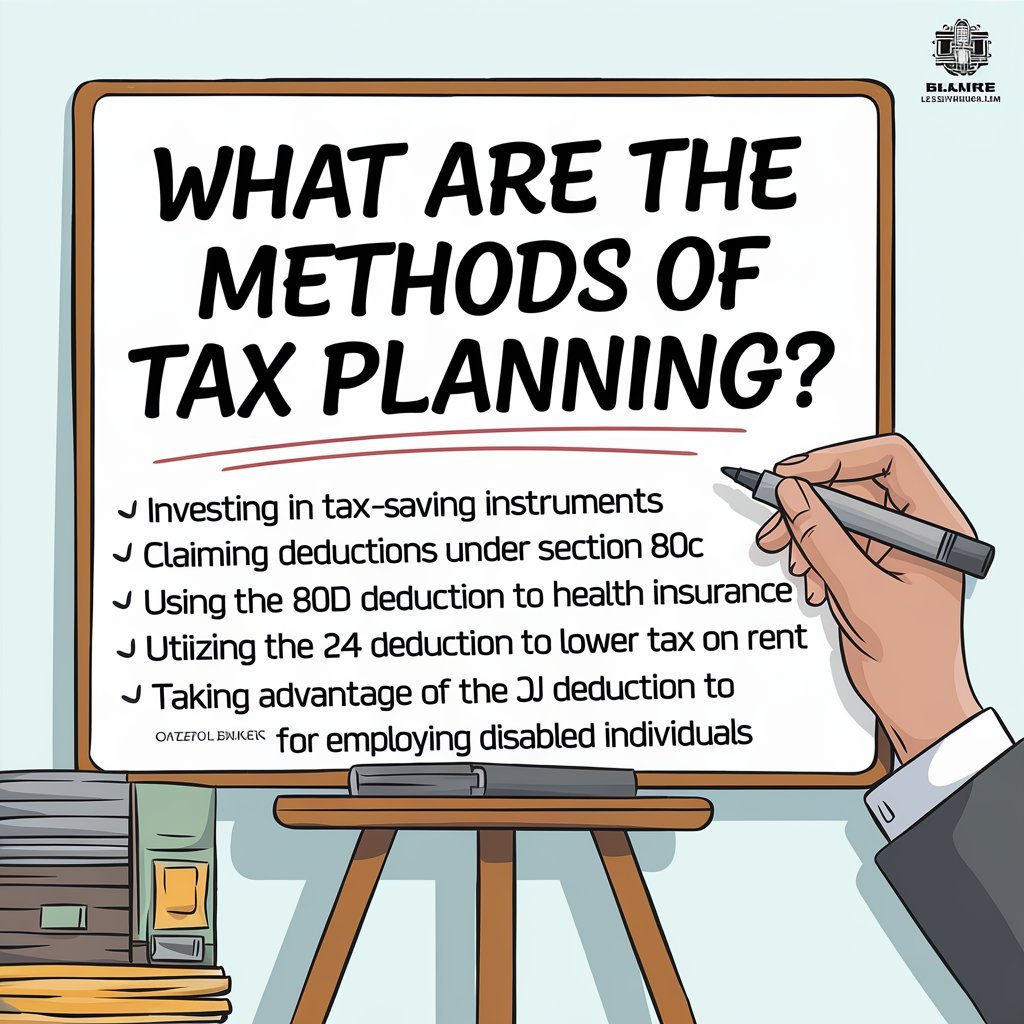Tax planning plays a crucial role in personal and business finance management. It’s the process of analyzing one’s financial situation or plan from a tax efficiency perspective. The objective is to ensure that taxes are minimized and resources are used effectively, all while staying compliant with the law.
Understanding the top 18 objectives of tax planning is essential for individuals, businesses, and organizations aiming to optimize their tax liabilities and enhance savings.
In this blog post, we’ll explore the top 18 objectives of tax planning, helping you better understand how to strategically manage your taxes.
- What is Tax Planning?
- What are the Top 17 Objectives of Tax Planning?
- Cutting Down Taxable Income
- Decrease Tax-Related Legal Problems
- Increase Savings
- Secure Financial Stability
- Manage Risk
- Reduction of Tax Liability
- Growth with the Economy
- Economic Stability
- Strategic Investment Choices
- Income Structuring
- Smooth Cash Flow
- Advance Tax Planning
- Preventing Penalties
- Effective Budgeting
- Financial Efficiency
- Efficient Retirement Planning
- Smart Investment Decisions
- Legal Reduction of Taxes
- What is the Importance of Tax Planning?
- What is the Scope of Tax Planning?
- What are the Methods of Tax Planning?
- What are the Limitations of Tax Planning?
- In Conclusion
- FAQs
What is Tax Planning?

Tax planning is the process of analyzing and organizing your financial affairs to minimize tax liabilities while ensuring compliance with legal requirements. It involves taking advantage of tax deductions, exemptions, credits, and allowances to reduce the amount of taxes you owe.
Effective tax planning helps individuals and businesses optimize their financial strategies, making sure that they retain more of their income or profits. The primary goal is to ensure that taxes are paid accurately, without overpaying, while also using tax-saving strategies to meet financial goals and maintain legal compliance.
What are the Top 17 Objectives of Tax Planning?

We have told you all about the top 17 objectives of tax planning, all the names are written below and along with that we have given sufficient information about it, with the help of which you have got the right information about the objective of tax planning. For which no one else is able to provide you:
- Cutting Down Taxable Income
- Decrease Tax-Related Legal Problems
- Increase Savings
- Secure Financial Stability
- Manage Risk
- Reduction of Tax Liability
- Growth with the Economy
- Economic Stability
- Strategic Investment Choices
- Income Structuring
- Smooth Cash Flow
- Advance Tax Planning
- Preventing Penalties
- Effective Budgeting
- Financial Efficiency
- Efficient Retirement Planning
- Smart Investment Decisions
- Legal Reduction of Taxes
Cutting Down Taxable Income
As one of the main tools of all forms of personal income tax, the main objective of tax planning is to reduce the amount of taxable income. One’s gross taxable income can be reduced by claiming all possible deductions, exemptions, and tax-saving investments. This results in reducing the portion of income that is liable for taxation and hence reduces the effectiveness of taxes.
Cutting Down Taxable Income is the 1st Objective among the Top 18 objectives of tax planning and also a very important one.
Decrease Tax-Related Legal Problems
Comprehensive tax planning helps to minimize violations of all existing laws and mitigate all potential legal problems with tax services. Proper filing of taxes and proper documentation prevents disputes and penalties which in turn maintains the financial health of the client.
Decrease Tax-Related Legal Problems is the 2nd Objective among the Top 18 objectives of tax planning and also a very important one.
Increase Savings
Tax management is the process in which an attempt is made to reduce the tax liability as much as possible from the total amount to be paid.
There are certain ways through which one can be in a position to save a good amount of money in any given year and this is through tax deductions, credits, and exemptions. This is why the financial gains generated can be reinvested to yield further financial gains and build a secure financial future.
Increase Savings is the 3rd Objective among the Top 18 objectives of tax planning and also a very important one.
Secure Financial Stability
Tax planning involves evaluating the tax consequences of an organization’s activities, so as to aid in the achievement of a planned and consistent financial performance by minimizing wastefulness through unnecessary taxation. A properly designed tax plan means that people can save and invest more of their income, spend only on necessities, and avoid volatile situations.
Secure Financial Stability is the 4th Objective among the Top 18 objectives of tax planning and also a very important one.
Manage Risk
A well-structured tax plan assists in the management of risks because taxes are paid on time and the payments are made to the correct amount. People must predict their future tax amounts and provide themselves for them, which reduces survival and a better guess on spending.
Manage Risk is the 5th Objective among the Top 18 objectives of tax planning and also a very important one.
Reduction of Tax Liability
A major objective of tax planning is to minimize the amount of tax that an entity pays. Through deductions, exemptions, and investments in tax-saving instruments such as retirement accounts tax-saving bonds, or even preferred stocks, a large portion of the tax base can be deferred and kept in hand.
Reduction of Tax Liability is the 6th Objective among the Top 18 objectives of tax planning and also a very important one.
Growth with the Economy
Taxes complement overall development and economic growth. So through access to these government tax incentives and other reliefs that are sector-specific, individuals and businesses also expand in line with the economy. Integrated tax management prepares you for an optimal outcome as you are aware of the policies that can be put in place to promote certain sectors or types of investments.
Growth with the Economy is the 7th Objective among the Top 18 objectives of tax planning and also a very important one.
Economic Stability
There is evidence that tax planning affects the stability of the general economy. In a mature economy, when people and companies pay their taxes legitimately, it improves the financial system. In addition, by promoting personal and business savings through effective tax planning, overall consumption levels and investment levels increase economic growth.
Economic Stability is the 8th Objective among the Top 18 objectives of tax planning and also a very important one.
Strategic Investment Choices
Smart tax management enables individuals to make wise decisions on investments by directing them to tax saving plans with respect to mutual funds and real estate as well as retirement savings. They not only help reduce the amount of income subject to tax but also provide a way to build financially for the future.
Strategic Investment Choices is the 9th Objective among the Top 18 objectives of tax planning and also a very important one.
Income Structuring
Managing the scenario income effectively will help in cutting down taxes. In other words, calculating the income received through salary, dividends, capital gains, and bonuses and knowing the right time to receive these incomes will help in better management of the tax bracket.
Income Structuring is the 10th Objective among the Top 18 objectives of tax planning and also a very important one.
Smooth Cash Flow
Proper tax management also helps one avoid large tax charges, which disrupt the cash flow for no reason. Basically, to avoid creating a cash flow shortfall in the middle of the year, one should pay taxes in advance and save for them throughout the year.
Smooth Cash Flow is the 11th Objective among the Top 18 objectives of tax planning and also a very important one.
Advance Tax Planning
The amount of tax credit will depend on the tax law and legislative powers of the country or state, a specific tax credit in a specific jurisdiction will be checked under the most appropriate tax law and power. This helps one avoid the rush, especially at the time of tax filing, and also enables one to optimize the available allowances.
Advance Tax Planning is the 12th Objective among the Top 18 objectives of tax planning and also a very important one.
Preventing Penalties
Proper tax planning helps eliminate penalties that are levied due to late filing of tax returns or mistakes made while reporting income. Thus, people manage to avoid the penalties that they would have to pay for not paying the required amount of tax or penalty.
Preventing Penalties is the 13th Objective among the Top 18 objectives of tax planning and also a very important one.
Effective Budgeting
Tax planning is an important factor when creating a tax budget. It is equally important for budgeting because taxes are often impossible to avoid and by estimating them in advance, one can create better, more realistic scenarios that provide for the necessary expenditures, savings, and investments for them.
Effective Budgeting is the 14th Objective among the Top 18 objectives of tax planning and also a very important one.
Financial Efficiency
PSLA acknowledges that efficiency can be encouraged through the use of tax planning tools. Because they can legally avoid paying taxes and they can earn high returns from their investments, they can direct their resources to other areas for investment, such as business growth, education, or whatever is needed for retirement.
Financial Efficiency is the 15th Objective among the Top 18 objectives of tax planning and also a very important one.
Efficient Retirement Planning
Tax management is important at all times, but especially when planning for retirement. Many people save through organizations such as provident funds or pension schemes, which allow them to earn tax exemptions on their contributions for future financial security. This means a higher chance of getting a larger amount in the post-retirement years as well as falling into a lower tax bracket.
Efficient Retirement Planning is the 16th Objective among the Top 18 objectives of tax planning and also a very important one.
Smart Investment Decisions
It helps taxpayers make efficient investments by pointing them to the most tax-effective instruments. These include ELSS which is an equity-linked savings scheme, NPS which is a National Pension System and PPF which is a Public Provident Fund.
Smart Investment Decisions is the 17th Objective among the Top 18 objectives of tax planning and also a very important one.
Legal Reduction of Taxes
The two basic concepts of tax planning involve minimizing taxes legally. This includes finding legal ways to reduce tax remittance, meeting legal requirements as well as legally utilizing every possible exemption, credit, and rebate.
Legal Reduction of Taxes is the 18th Objective among the Top 18 objectives of tax planning and also a very important one.
What is the Importance of Tax Planning?

Tax planning enables individuals or companies to avoid paying unnecessarily high taxes so as to encourage more savings and investment. Deductions and exemptions ensure that taxpayers can control the amount of taxes they pay, create exemptions to invest in projects that create resources for future use, as well as ensure that financial resources are allocated in line with a certain financial goal.
What is the Scope of Tax Planning?

Investment, income, retirement, and inheritance representation fall under its scope. It involves coordinating financial options in terms of tax-saving elements which may include deductions, investments, and distribution of assets that will reduce the taxes to be paid.
What are the Methods of Tax Planning?

Here are the all methods of tax planning:
- Permissive Tax Planning: Planning as per legal provisions, like claiming deductions.
- Purposive Tax Planning: Planning to reduce tax with specific goals, e.g., tax-saving investments.
- Short-term Tax Planning: Planning near the fiscal year-end for immediate benefits.
- Long-term Tax Planning: Planning at the start of the year for long-term financial security.
What are the Limitations of Tax Planning?

Here are the all limitations of tax planning:
- Complex Laws: Frequent changes in tax laws make planning challenging.
- Ethical Boundaries: Distinguishing between legal planning and illegal evasion.
- Limited Control: Taxpayers can’t control changes in tax rates or policies.
- Risk of Over-planning: Aggressive tax planning can attract audits or penalties.
In Conclusion
One of the most important and widely used financial activities is tax planning. Optimizing tax burden and compliance and utilizing available incentives, means increasing the ability to maintain wealth and economic stability. Whether it is buying a home, growing a business, or preparing for retirement, a properly planned taxation policy will ensure that your money works hard for you.
Having some clear objectives of tax planning objective can help you be confident in your financial position and keep your taxes low.
FAQs
Q1. What are the objectives of MAT?
The primary objective of Minimum Alternate Tax (MAT) is to ensure that companies with substantial book profits pay a minimum tax, even if they claim exemptions or deductions under tax laws, to prevent tax avoidance.
Q2. What is the full form of mat tax?
MAT stands for Minimum Alternate Tax.
Q3. What are the features of MAT?
MAT is applicable to companies and ensures that those showing large book profits but paying minimal or no tax due to exemptions pay a minimum tax, and it can be carried forward for future adjustments.
Q4. Why is MAT important?
MAT is crucial for preventing tax evasion by ensuring all profitable companies contribute a minimum tax, thus promoting fairness in the tax system.
Q5. What is the use of MAT?
MAT is used to impose a minimum tax on companies with substantial book profits, even if they use deductions or exemptions to reduce their taxable income under normal tax provisions.


Add a Comment